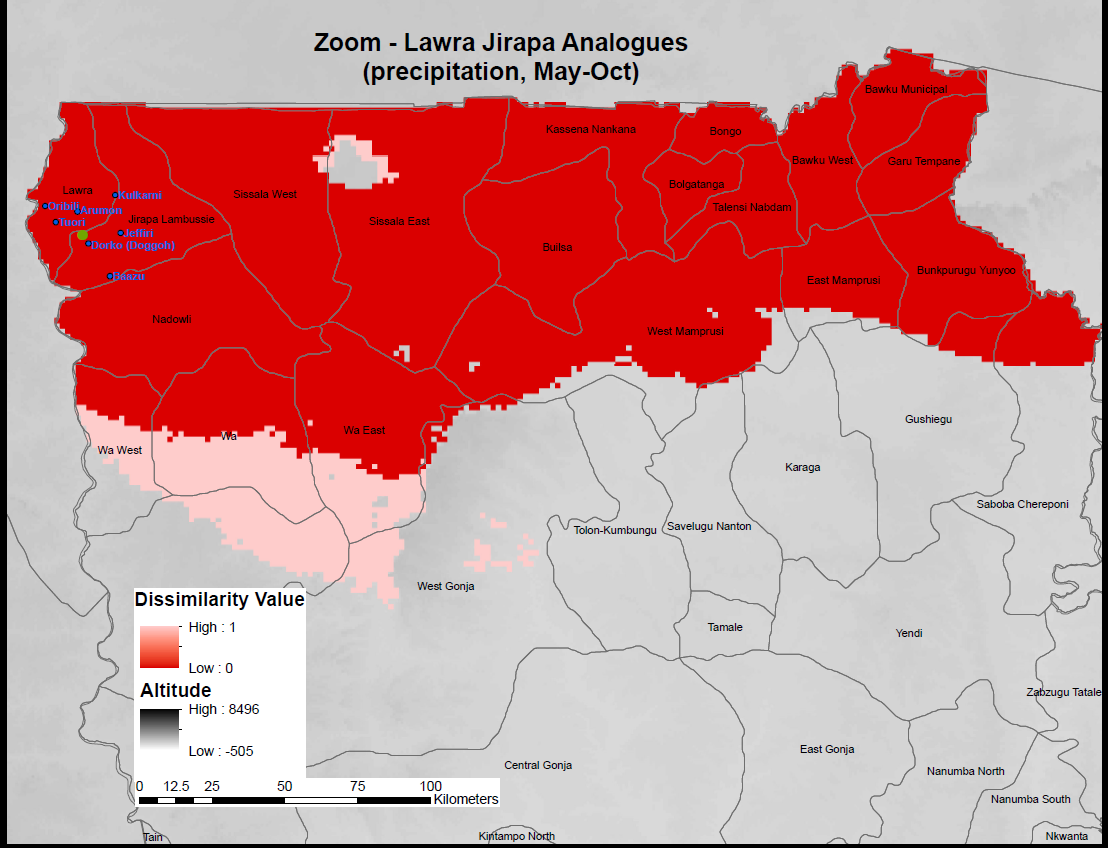The key project activities are:
- Interaction with the CCAFS climate modelling team in using the climate analogue tool for the farms of the future approach;
- Participatory modelling of village change in location x over past decades and of future scenarios;
- Selection of farmers from location x and choice of study tour visit sites (locations y, z etc.) depending on climate analogue information, but also learning opportunities and similarities in socio-economic/environmental challenges;
- Involvement of broader stakeholders from the agricultural innovation system (AIS) during the whole process;
- Training the study tour farmers in how to use low tech video cameras, including creation of two 'village change' video in Tanzania;
- Facilitation of a study tour with a bus trip to a range of learning sites across Tanzania and in Burkina Faso for Ghana farmers;
- Video documentation by farmers of the visit to document learning insights;
- Sharing video footage and experiences in reflections with communities back at home in location x;
- Extending existing adaptive capacity framework for analysis;
- Evaluations during the study tour by participants (farmers and other AIS actors) providing information for the team to analyse adaptive capacity building;
- Project team write-up country reports and journal articles, and share video footage as appropriate.
Map 1: Map showing the study tour journey undertaken in Tanzania
Map 2: Example of a dissimilarity climate map – an output from the CCAFS climate analogue tool


